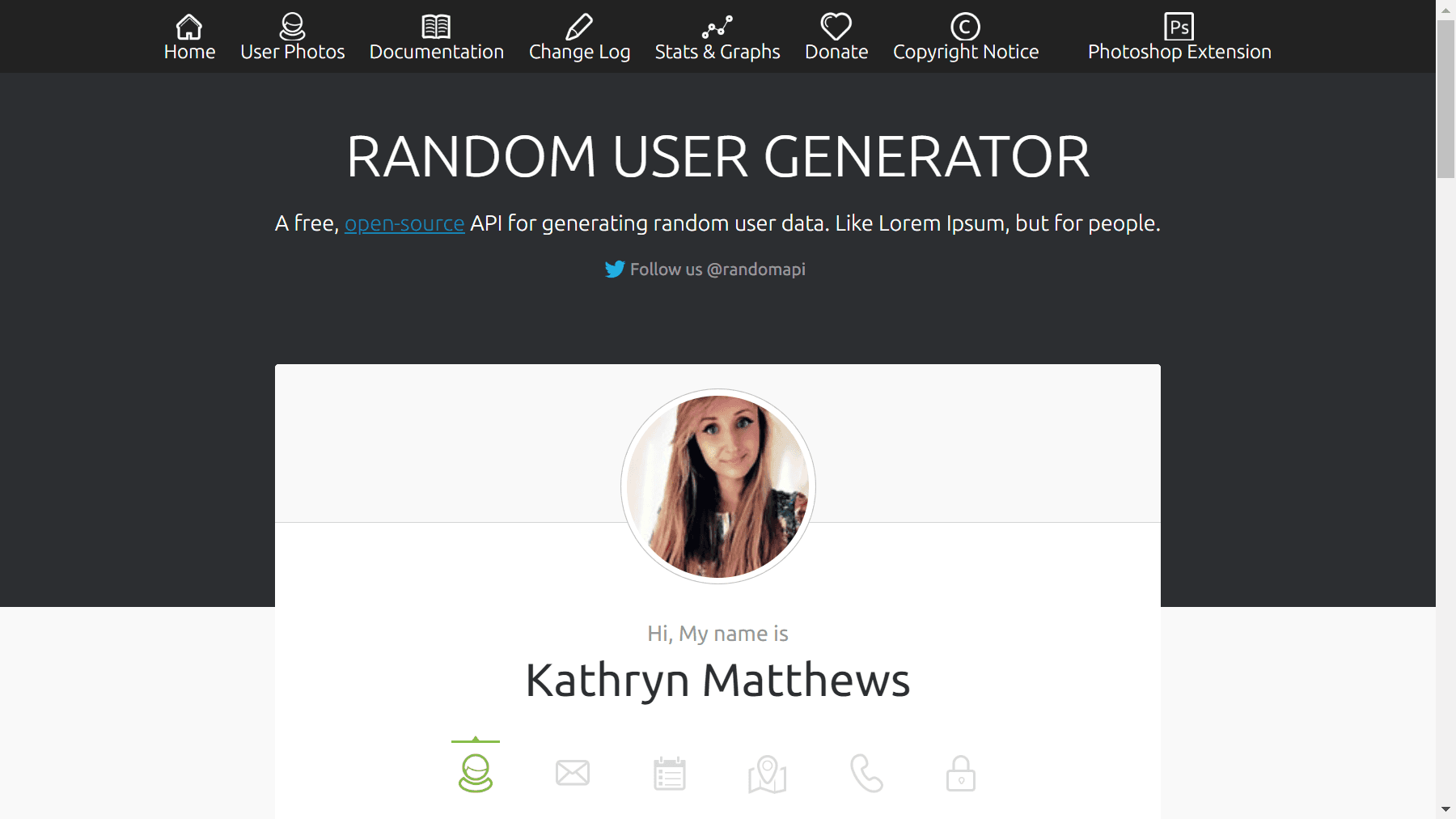Random User Generator

About Random User Generator
What is Random User Generator?
Random User Generator is a powerful and free API service designed to generate random user data for various purposes, such as application testing, development, and mockup creation. This tool creates detailed user profiles, including names, addresses, emails, and even profile pictures, making it a valuable resource for developers and designers who need realistic data for their projects.
How Random User Generator Works
Random User Generator works by providing a simple API endpoint that can be called to receive a randomly generated user profile. Users can specify the format of the data they need, such as JSON, XML, CSV, or YAML, and the API returns the data accordingly. This flexibility allows developers to integrate the generated data into their applications seamlessly. The service is easy to use, with minimal setup required, making it accessible for developers of all skill levels.
What Problem Random User Generator Solves
Random User Generator addresses the need for realistic, random user data in application testing and development. Manually creating such data can be time-consuming and error-prone. This tool automates the process, ensuring that developers have access to diverse and comprehensive user profiles that can be used to test various aspects of their applications, such as form validation, user authentication, and UI design.
Random User Generator Features
Realistic User Profiles
Generates detailed user profiles with names, addresses, emails, phone numbers, and profile pictures.
Multiple Data Formats
Supports JSON, XML, CSV, and YAML formats, allowing for easy integration into different applications.
Customizable Requests
Allows customization of data requests, such as specifying the number of users or the nationality of the users generated.
Free and Open-Source
Available as a free service with open-source code, providing transparency and flexibility for developers.
Easy API Integration
Simple API endpoint that can be easily integrated into any development project.
Extensive Documentation
Comprehensive documentation available to help users get started and make the most of the API.
Pricing
Random User Generator is completely free to use. There are no hidden costs or subscription fees, making it an accessible tool for developers and designers working on projects of any scale.
Pros and Cons
Pros:
Generates realistic and diverse user data
Supports multiple data formats
Free to use with open-source code
Easy to integrate with a simple API
Comprehensive documentation
Cons:
No premium features or advanced customization options
Dependency on the API for data generation, which may affect speed and reliability during high usage times
Common Questions
How do I use the Random User Generator API?
You can use the API by sending a request to https://randomuser.me/api/. You can customize the request by specifying parameters such as the number of users or the format of the data.
Is Random User Generator free?
Yes, Random User Generator is completely free to use.
What formats does Random User Generator support?
Random User Generator supports JSON, XML, CSV, and YAML formats.
Can I generate users from specific countries?
Yes, you can specify the nationality of the users you want to generate by using the nat parameter in your API request.
Conclusion
Random User Generator is a valuable tool for developers and designers who need realistic user data for testing and development. Its ease of use, extensive features, and free access make it a must-have resource for creating comprehensive and diverse user profiles. Whether you're working on a small project or a large-scale application, Random User Generator can help you streamline your development process and ensure thorough testing.